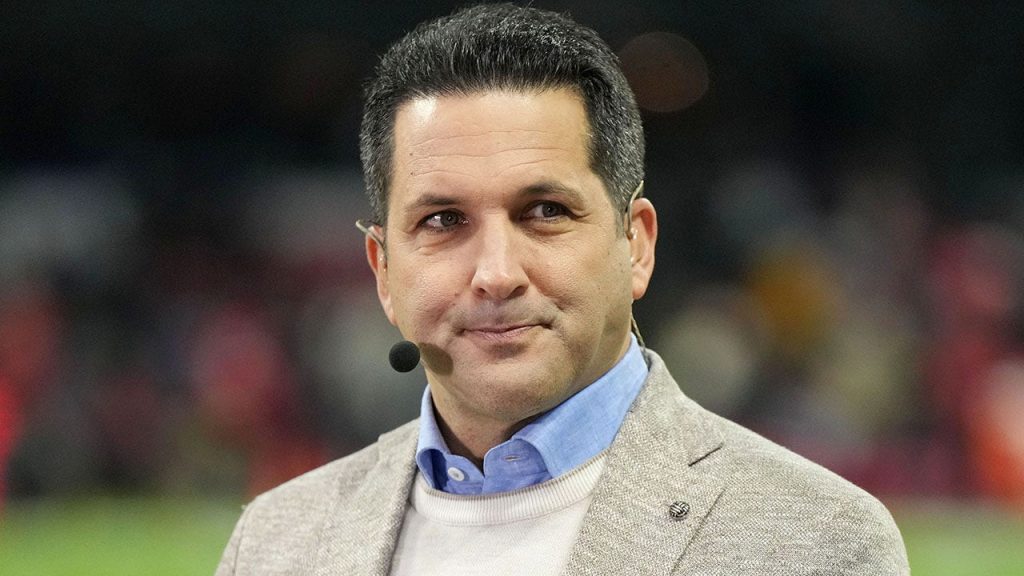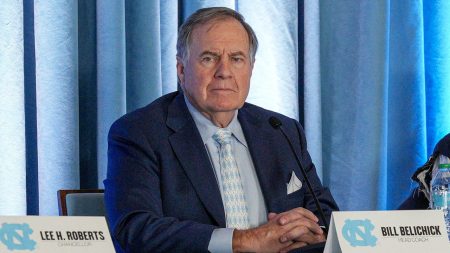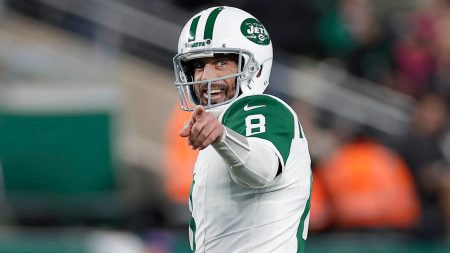Adam Schefter’s report suggesting the NFL might employ replay assistance to review quarterback slides ignited a firestorm of controversy, primarily centered around the implication that Kansas City Chiefs quarterback Patrick Mahomes benefits from preferential treatment by officials. Schefter’s report, posted on X (formerly Twitter), linked the potential rule change to criticism Mahomes received for a late slide against the Houston Texans, which drew an unnecessary roughness penalty. While Schefter attempted to bolster his claim with statistics highlighting the disparity in penalties between the Chiefs and their playoff opponents, his framing of the issue as a response to “complaints” about Mahomes sparked accusations of bias and fueling conspiracy theories.
The crux of the controversy lies in the perception that Schefter singled out Mahomes as the driving force behind the potential rule change. Critics argue that this framing unfairly portrays Mahomes as manipulating the system, while simultaneously minimizing the legitimate safety concerns surrounding late slides. By linking the two, Schefter inadvertently fed into the narrative that Mahomes receives preferential treatment, a narrative that many fans and commentators find baseless and detrimental to the integrity of the game. Furthermore, critics pointed out that late slides are a league-wide issue, not unique to Mahomes, and therefore focusing solely on him is misleading and unfair.
Schefter’s use of statistics, while intended to support his claim, further inflamed the situation. He cited data showing a significant discrepancy in roughing the passer and unnecessary roughness penalties called against the Chiefs’ opponents compared to those called against the Chiefs themselves. However, critics argued that this statistical comparison lacks context and fails to account for various factors that could contribute to the disparity, such as playing style, opponent behavior, and even random chance. Presenting these statistics without acknowledging these nuances only served to reinforce the perception that Schefter was pushing a pre-conceived narrative.
Adding fuel to the fire was actor and prominent Chiefs fan Eric Stonestreet, who publicly criticized Schefter on NFL Network. Stonestreet accused Schefter of amplifying a conspiracy theory about the league rigging games in favor of Mahomes and the Chiefs. He argued that Schefter’s tweet implied Mahomes was the sole beneficiary of questionable roughing the passer calls, ignoring similar instances involving other quarterbacks. This public rebuke from a high-profile figure further amplified the backlash against Schefter and intensified the debate surrounding officiating bias.
Mahomes himself addressed the allegations of favoritism during the week, denying any perception of special treatment. He emphasized his focus on playing the game to the best of his ability and leaving the officiating decisions to the referees. He underscored the team’s philosophy of focusing on effort and execution, rather than external factors like officiating. Mahomes’ response aimed to deflect the controversy and reiterate his commitment to fair play, but the debate continued to rage on social media and sports commentary platforms.
The incident highlights the challenges faced by sports journalists in navigating sensitive topics and the potential for even well-intentioned reporting to be misinterpreted and fuel existing controversies. Schefter’s attempt to connect the potential rule change to the Mahomes slide controversy backfired, creating a perception of bias and sparking accusations of promoting conspiracy theories. The subsequent backlash underscores the importance of careful framing, nuanced analysis, and acknowledging multiple perspectives when reporting on potentially contentious issues in the world of sports. The controversy ultimately overshadowed the substantive discussion about the potential rule change and its implications for player safety and the integrity of the game.










